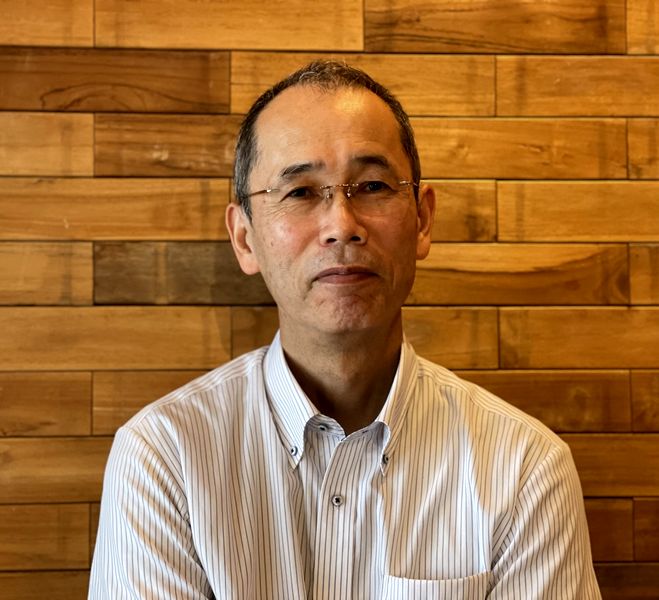Dr. Shiro Ochi, Toyama University of International Studies (TUINS), Japan
Toyama University of International Studies (TUINS) is one of the latest members of Sentinel Asia. It's Business Informatics Program in the Department of Contemporary Society is strengthening its data science research. As part of this activity, they joined Sentinel Asia in 2024, with the aim of contributing to international cooperation. Dr. Shiro Ochi previously worked at the Geoinformatics Center (GIC) at the Asian Institute of Technology (AIT) in Thailand and has been supporting Sentinel Asia. Now he is resuming his contribution to Sentinel Asia.
 |
| Dr. Shiro Ochi |
Sentinel Asia Secretariat:
Could you tell us the process leading to this membership, with your past involvement with Sentinel Asia? Also, could you talk about TUINS and your role there?
Dr. Shiro Ochi:
Before I was seconded from JAXA to the GIC-AIT in April 2016 for three years, I worked closely on the International Disasters Charter. During that time, I provided technical support for Sentinel Asia activities conducted by GIC.
TUINS has "International" in its name, and we have a strong interest in contributing to international initiatives, which was the main reason for our joining. When considering what I could do, Sentinel Asia was one of the options. Additionally, the Noto Peninsula earthquake occurred in January 2024. As you know, Noto Peninsula is very close to Toyama, where our university is located. So, it raised disaster awareness in the region, which also played a role in the decision.
Sentinel Asia Secretariat:
What kind of work do you do there?
Dr. Shiro Ochi:
I am affiliated with Business Informatics in the Department of Contemporary Society at TUINS. The students study Social Sciences, and we do not have a dedicated program for remote sensing at our university. However, the Ministry of Education, Culture, Sports, Science and Technology (MEXT) of Japan has been emphasizing data science, and the university has four faculty members specializing in information sciences. I was hired as a faculty member to teach data science.
Additionally, the university has strong ties with Toyama Prefecture, so I also work on understanding local needs and making proposals related to disaster management for the prefecture, as concern regarding disasters raised, as I said.
Sentinel Asia Secretariat:
Have you noticed any changes in Sentinel Asia compared to when you were previously involved at GIC-AIT?
Dr. Shiro Ochi:
I feel that more organizations have joined, and there are now various Value-Added Products (VAPs) being produced. I've also noticed that many universities and other institutions now use artificial intelligence (AI) and machine learning for the analysis of satellite observation data.
Sentinel Asia Secretariat:
Have there been any reactions within the university or elsewhere regarding its membership in Sentinel Asia?
Dr. Shiro Ochi:
Joining an international initiative like Sentinel Asia is a great honor, and the university is very supportive of this development.
Sentinel Asia Secretariat:
Considering your role at the university, do you plan to engage with Sentinel Asia in areas beyond disaster management, such as data science and Earth observation?
Dr. Shiro Ochi:
Yes. Personally, I am particularly interested in JAXA's Global Satellite Mapping of Precipitation (GSMaP, https://sharaku.eorc.jaxa.jp/GSMaP/index.htm). When I was previously involved in Sentinel Asia at GIC-AIT, we had requests related to prediction and early warning system at country scale from some international organizations such as the World Bank. Now, we can utilize GSMaP and "Today's Earth (TE)" (https://www.eorc.jaxa.jp/water/) for that purpose. I think it would be beneficial to conduct a pilot project in Sentinel Asia.
In the past, I conducted flood model research based on Remote Sensing and GIS. I would like to leverage that experience in Sentinel Asia activities. For example, I have a plan to develop an early warning system for floods using GSMaP and TE in our office.
Sentinel Asia Secretariat:
TUINS is participating in Sentinel Asia as a Data Analysis Node (DAN). What kind of activities do you plan to engage in as a DAN?
Dr. Shiro Ochi:
I would like to contribute by producing VAPs, but I also think it is crucial to focus on how these VAPs are used. Basically, I believe that it is better for VAPs to be created by the affected countries or regions themselves rather than relying on external organizations. Locally produced VAPs are more practical and easier to use. I also want to standardize as well as localize the process of producing VAPs so that they can be shared effectively with DANs in different countries.
For this purpose, capacity-building activities are essential. When I was previously involved in Sentinel Asia, we conducted training using processing software like QGIS or ArcGIS. Nowadays, more software and tools such as AI are available. I would like to incorporate those into the training programs. With the recent progress of the related technologies, I believe it has become easier to conduct capacity-building programs.